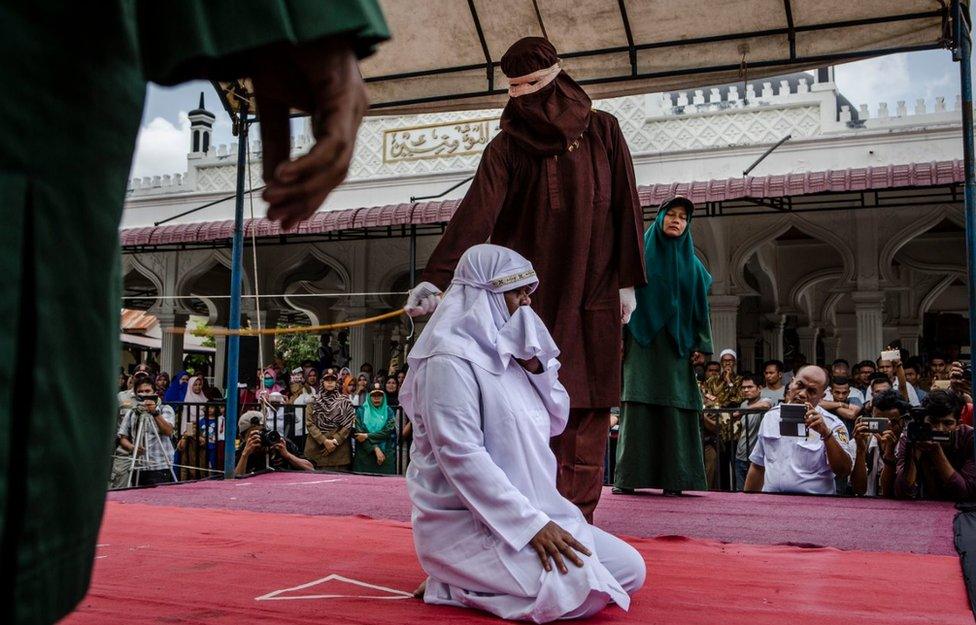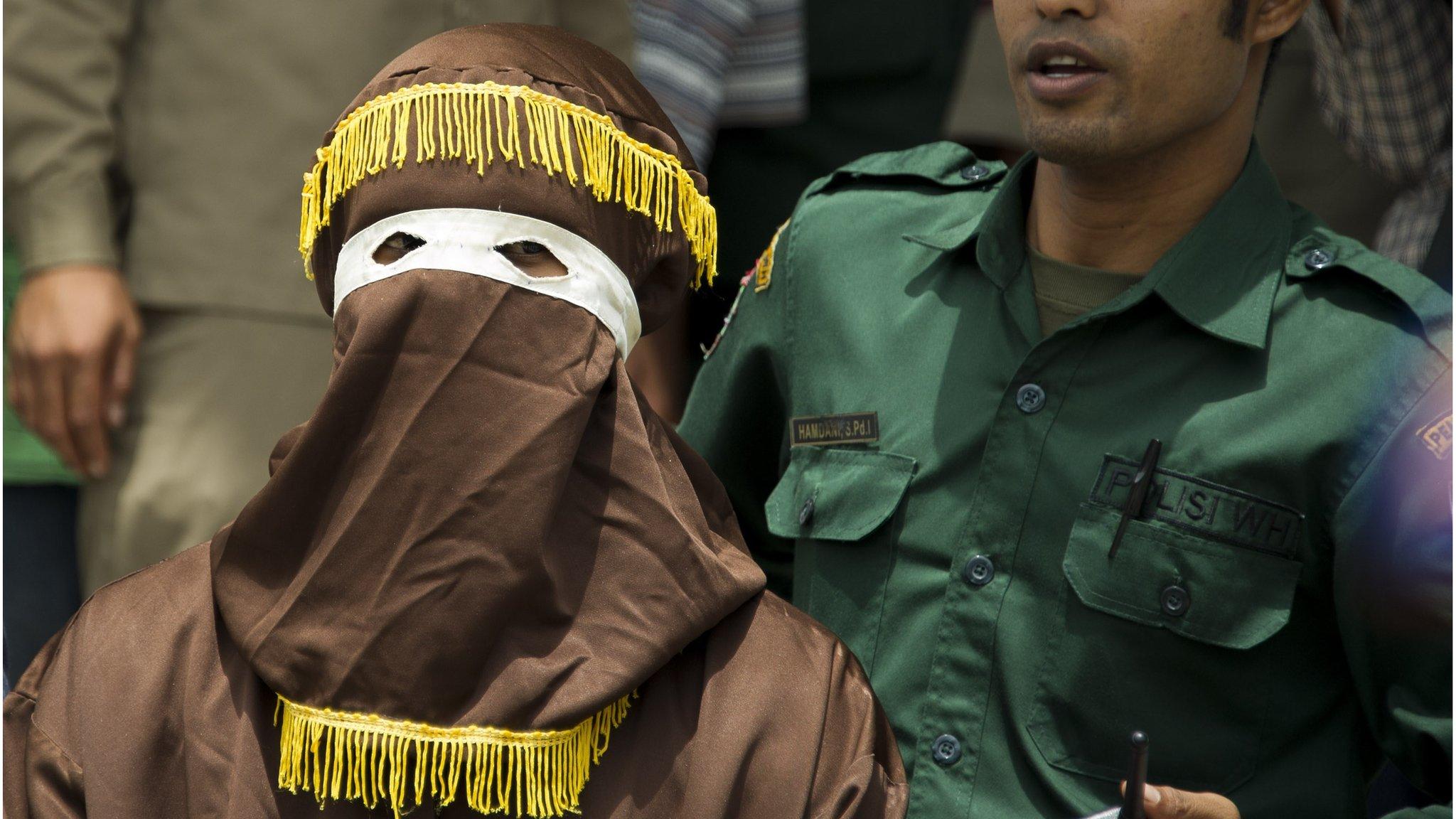The countries that cane their convicts
- Published

Flogging is a common punishment in Aceh state, where authorities have adopted Sharia law
Two men are due to be caned in public after they were caught in bed together in Aceh, Indonesia.
The men will each receive 85 lashes in public, as punishment under the strict Islamic laws used in Aceh.
It is the only Indonesian province where Sharia is in force. According to human rights campaign group Amnesty International, 108 people were punished for various offences in 2015.
Their offences ranged from gambling to alcohol, adultery and public displays of intimacy outside of marriage.
Pictures of these public punishments - designed to humiliate as much as to injure - show people being led onto a raised platform, and made to kneel or stand as a hooded man beats them with a long, thin cane while a large crowd watches.
Caning is considered so barbaric that Amnesty says it could be considered akin to torture.
But flogging as a punishment for transgressions in countries where Islamic laws are followed is relatively common.
In Sudan, women can be flogged for dressing "indecently", external. In Saudi Arabia, a woman driving a car can be enough to warrant the sentence. In Iran, attending a party with both men and women can end with being whipped.

Raif Badawi was sentenced to 1,000 lashes in Saudi Arabia, prompting protests around the world
One woman flogged for doing just that described on the Iranian Facebook page My Stealthy Freedoms how she was led into a room in shackles and beaten by a woman.
"With the impact of the first lash, I jumped out of my [seat] uncontrollably," the woman wrote. "I was so shocked that even my tears would not drop. I wanted to scream, but I could not even control my voice."
But probably the most famous case in recent years is that of Raif Badawi, a Saudi blogger sentenced to 1,000 lashes and 10 years in prison for "insulting Islam" online.
So far, authorities have only carried out the first 50 lashes. The public outcry appears to have had some success in halting the sentence, but it still hangs over him.
In the Maldives, where Sharia law is mixed with English common law, flogging is also legal punishment, most commonly used on those convicted of having extramarital sex. The majority of cases are women.
Caning is also used as a punishment in Malaysia, Singapore and Brunei, a legacy of British colonial rule in the 19th Century.
Unlike the public floggings in Aceh, however, these punishments take place behind closed doors, with the accused tied to specially constructed frames and carried out with a doctor in attendance.

Swiss software consultant Oliver Fricker (pictured) was caned for spray painting graffiti in Singapore
Its use is relatively widespread: in Singapore 2,203 people were caned in 2012, including 1,070 foreigners, the US State Department said.
Since 2010, at least three Europeans have been sentenced to be caned for vandalism, including Swiss software consultant Oliver Fricker, who spray-painted graffiti on a train.
But the numbers pale in comparison to Malaysia.
In 2010, Amnesty International released a report saying some 10,000 prisoners and 6,000 refugees were being caned each year, punishment for more than 60 crimes - including drug-related and sexual offences, as well as migration violations.
- Published17 May 2017

- Published23 October 2015

- Published5 March 2015

- Published23 May 2014

- Published6 December 2010